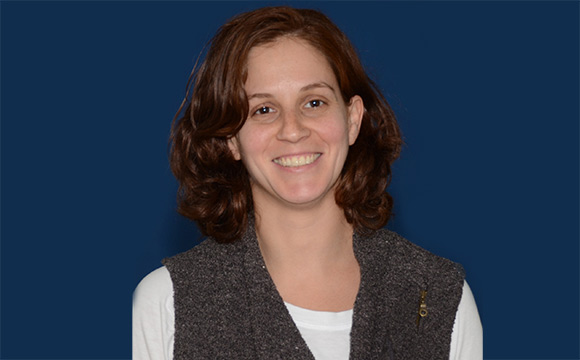A Word From Our Latest Visiting Fellow Osnat Shtraichman

1. Provide an overview of your fellowship at your hospital and the role you played during your stay.
During my fellowship at UCSF I spent time with the lung transplant team. My host was Professor Jeff Golden who founded this program at UCSF. As a fellow, I took part in both in- and out-patient services and the full lung transplant process, including pre-transplant clinical evaluations, workup for transplant candidate eligibility, transplantation surgery, and post-transplant care. I was fortunate to have the opportunity to accompany a patient from a severe respiratory failure to transplant recovery and expected hospital discharge.
2. Describe how your fellowship opportunity has expanded your knowledge in your specific field.
RMC is currently the only center performing lung transplants in Israel. The program at RMC, lead by Professor Mordechai Kramer, is on par to that of UCSF. The UCSF lung transplant program takes pride in being the leading program in the country for lung transplantation. This fellowship has given me the opportunity to observe UCSF’s multidisciplinary approach to patient care, which includes medical and paramedical care (dieticians, pharmacists, etc.). Concurrently I was able to share my own RMC experience in the field.
3. What did you enjoy most about your fellowship opportunity?
I must admit I enjoyed everything about my fellowship experience. I had a unique opportunity to learn; I met a group of very professional physicians with a lot of experience in the field of lung transplant and excellent bedside manner. I received a very warm welcome from the entire team and all of them did the best they could to make the experience as productive for me as possible. I was also very impressed with the infrastructure of the lung transplant program. This includes all the supportive personnel: administrative assistance, excellent nurse coordinators, nurse practitioners, social workers, dieticians, pharmacists and medical staff.
4. What were some of the challenges you faced while working at your hospital?
The biggest challenge was the fact that this was only an observational fellowship. Throughout the fellowship I was not allowed to examine patients or take an active part in their care.
5. Do you feel international medical relationships and fellowship programs are vital to the future of medicine and research?
Absolutely! In the field of medicine things are constantly changing due to new developments and progress. This progress is the result of a worldwide collaboration of sharing ideas and experiences. This is especially relevant in areas where prospective double blind clinical trials are not always feasible (for example rare diseases with only few patients) and where clinical experience must serve as both the basis of treatment and the route for further improvement.
6. 6. Explain the major differences between the Israeli health care system and the United States private healthcare systems in terms of your specific field.
I was deeply impressed with the outstanding facilities at UCSF. There are specifically trained personnel for every step of patient care. The accessibility of technology is also easier than in Israel. I assume this is due to the differences in the health care system. The availability of personnel and facilities takes a substantial load off of the physicians. Physicians are then able to direct all of their energy into patient care instead of dealing with different bureaucratic obstacles, which is a part of everyday life for all Israeli medical professionals.
7. What do you feel are the key issues and challenges in your field - not only in the Unites States and Israel, but worldwide?
To date, lung transplantations have not been able to provide the same long-term outcomes as other organ transplantations. There are several assumptions to why this is the case. The biggest challenge right now is to gain a better understanding of chronic rejection and loss of graft function in order to prevent this complication and prolong the long-term survival rates.
8. What are your future plans at Rabin Medical Center when you return to Israel?
When I return to RMC I plan to finish my pulmonary fellowship and stay on as an attending pulmonary physician. I wish to stay on the lung transplant team and help the growing program achieve its goals.
9. Would you recommend this fellowship to your peers? Why or why not?
I would definitely recommend this fellowship to my peers. I think it is an amazing opportunity to learn, broaden the mind with new ideas and meet new people and form professional relationships for the future.
As expressed above this was an amazing experience for me.
Thank you so much for giving me this opportunity!